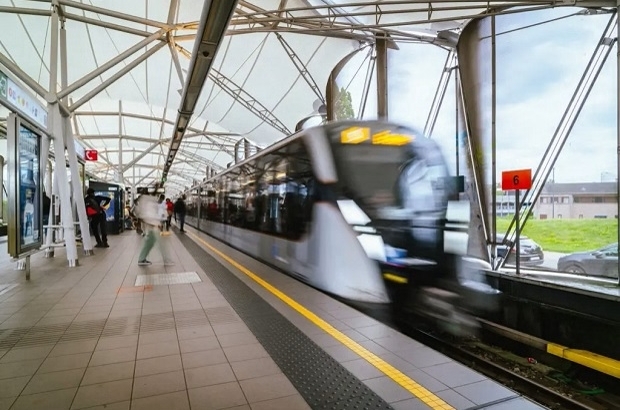- Daily & Weekly newsletters
- Buy & download The Bulletin
- Comment on our articles
Bad traffic, excellent public transport: Brussels ranks 39th in Global Cities Index
Brussels has been ranked 39th out of 763 cities in a global index from British financial house Schroders, which cited the city's excellent public transport and poor car congestion as major factors in the score.
Schroders’ Global Cities Index ranks cities based on their economic potential, using the rankings as input for real estate investment decisions, such as investments in offices and logistics centres or senior or student housing.
“It’s interesting for us to know what the most promising city economies are, because you want to invest in a growing city where people like to live and work,” Tom Walker, real estate investment expert at Schroders, told Bruzz. “If a city grows and property supply is limited, rents and values go up.”
The index ranks cities based on four criteria: economic dynamism, environmental policies, innovation and transport infrastructure. San Francisco took the number one spot, ahead of London and San Jose, the heart of Silicon Valley.
The Belgian capital makes the top 10 in Europe after London, Paris, Stockholm, Munich, Berlin, Amsterdam, Manchester, Copenhagen and Zurich.
“That’s not bad at all – moreover, Brussels climbs in the ranking year after year,” said Walker.
“Transport is Brussels' strongest point. That includes many facets: from the trains to Zaventem airport and its relative proximity to the port of Antwerp, one of the largest in the world. But what Brussels really excels at is its public transport, ranking sixth for that – world class.”
But that score goes hand in hand with a terrible one for car traffic congestion. Walker said that according to TomTom's rankings, Brussels is in the top 10 cities with the biggest congestion problems, which drags down the overall score for transport.
Another strong category for Brussels, however, is innovation, wherein the city is ranked 42nd.
The innovation score is also the result of diverging forces: Brussels scores strongly in terms of the presence and proximity of top universities (KU Leuven, UCLouvain, ULB and VUB), but relatively weakly when it comes to venture capitalists, lenders investing in promising start-ups.
“Brussels is not really a start-up hub, although there were some big deals recently,” Walker said.
A relatively low score in economy (79th) has much to do with a low population compared to megacities in the upper echelons of the category such as London, Paris, Hong Kong or Tokyo.
“It's just the reality for most European cities,” Walker explained. “The Asian or American supercities, on the other hand, can attract investment and activities simply because of their enormous scale that are not feasible or interesting to investors elsewhere.”
When it comes to the environment, Brussels came in at 194.
“Brussels does well in terms of environmental regulations – as you would expect, given that it is the home of everything to do with EU legislation – but scores weakly in terms of general environmental wellbeing, due to extremely poor water quality and a very mediocre score for air pollution,” Walker explained.
“For the record, this is not about drinking water. It’s more about the level of pollution of groundwater, which is the result of intensive farming practices with fertilisers and pesticides, and high population density relative to the area of the basin in which Brussels lies.”




















Comments
Car congestion will only get worse and worse.
We have the so called "good mobility" initiatives to thank for that!
Initiatives we have never voted for or mandated in any way or form.
The tighter the roads become, the more streets we (let them) turn to unused empty spaces, the more 50 kph arteries we choke down to 30 kph, the worse car congestion is going to get.
Prediction:
Within 10 years, Brussels city center will become a ghetto and real estate prices will plummet.
Then, big developers will move in,
buy everything for peanuts,
tear it all down with subsidies from our tax money (because of the "bad" carbon footprint of all old buildings)
and turn it into an urban paradise only for those in the top 1-3% of income.
I agree with JOHNP. "Good Move" is anything but. So many Brussels residents now give Brussels centre a big miss. From one year to the next.
Car congestion can only be reduced by reducing cars. Excellent public transport combined with parking space at the outskirts of the cities will help.
Live in the center of BXL and Bike most days...Good Move works It is just all the people One per car who are unwilling to change, but change is here to stay.... quality of life is better in cities with fewer cars !